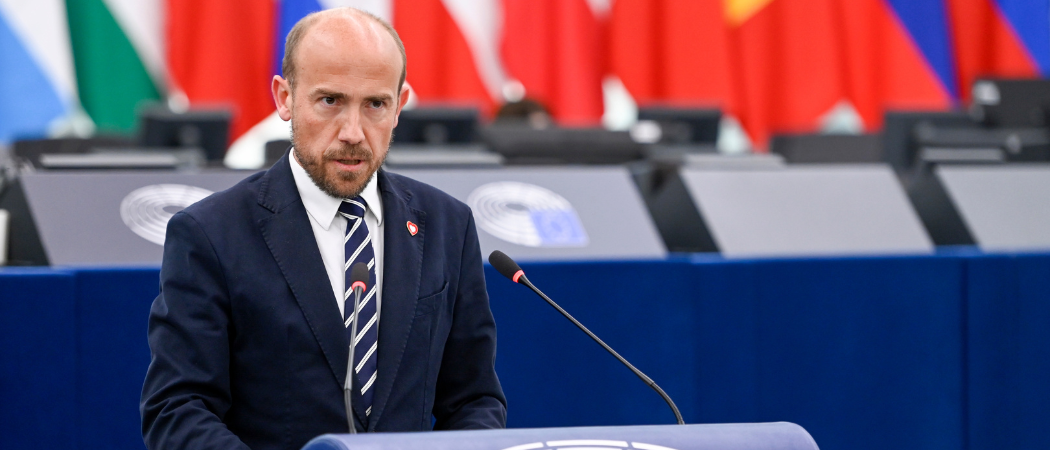Call for “full involvement” in negotiations returns to a perennial complaint that Parliament should have a say in political agreements

MEP Borys Budka. Photo credits: Michel Christen / European Union
A call for MEPs to be involved in negotiations on UK participation in the next EU research Framework Programme, FP10, has been tabled by the European Parliament’s Committee on Industry, Research, and Energy (ITRE).
The call for “full involvement” in future negotiations comes in a draft opinion on a Parliamentary report reviewing the implementation of the EU-UK Trade and Cooperation Agreement.
Signed at the end of 2020, the agreement sets the terms for post-Brexit relations between the EU and UK, including the UK’s association to Horizon Europe. While the agreement is open-ended, association to FP10 will require fresh negotiations on issues such the scope of UK participation and how much it pays the EU to take part.
While the Parliament was asked to endorse the Horizon Europe deal, MEPs had no role in negotiations.
“UK association to Horizon Europe is a positive development for research and innovation, but concerns remain about the limited role of the Parliament in the association agreement,” said Borys Budka, an MEP with the European People's Party and ITRE rapporteur on the agreement.
Other than criticising the delay in implementing the association agreement, which did not happen until 2023, the draft opinion cites no specific shortcomings in the last round in negotiations.
However, the insistence on a role for MEPs reflects past complaints about being shut out of negotiations for other association agreements, for example with New Zealand and the Faroe Islands.
Related articles:
On the agenda
In addition to addressing FP10 negotiations, the draft opinion underscores the importance of the UK maintaining standards comparable to those in the EU in key areas such as digital markets, data protection, cybersecurity and AI regulation.
“The opportunities and the risks around this area are the same in the European Union as in the United Kingdom, so divergent regulatory approaches will only complicate the matter,” said shadow rapporteur Eero Heinäluoma, speaking for the Socialists and Democrats group.
MEPs also voiced concerns about increases in healthcare surcharges and visa costs for researchers entering the UK on Horizon Europe projects. These added costs are “making mobility more difficult financially for EU researchers and their UK partner institutions,” the draft opinion says.
As a result, the draft urges a return to the previous levels of visa fees and healthcare surcharges.
Finally, the document takes issue with the UK's decision not to join other EU programmes, such as Euratom, expressing hope that the EU “will not again allow the UK to retrospectively ‘cherry-pick’ which parts of the EU’s research and innovation programmes it wishes to associate with.”
A similar concern is raised regarding Erasmus+, where the UK government had previously failed to put forward concrete proposals for association. Here events are moving more quickly, with the announcement on May 19 that the UK and EU would work towards the UK’s association with Erasmus+.
The draft report on the implementation of the EU-UK Trade and Cooperation Agreement, along with the accompanying draft opinions, will go to the vote in the Parliament’s foreign affairs and international trade committees on September 25, with a plenary vote expected in October.





 A unique international forum for public research organisations and companies to connect their external engagement with strategic interests around their R&D system.
A unique international forum for public research organisations and companies to connect their external engagement with strategic interests around their R&D system.